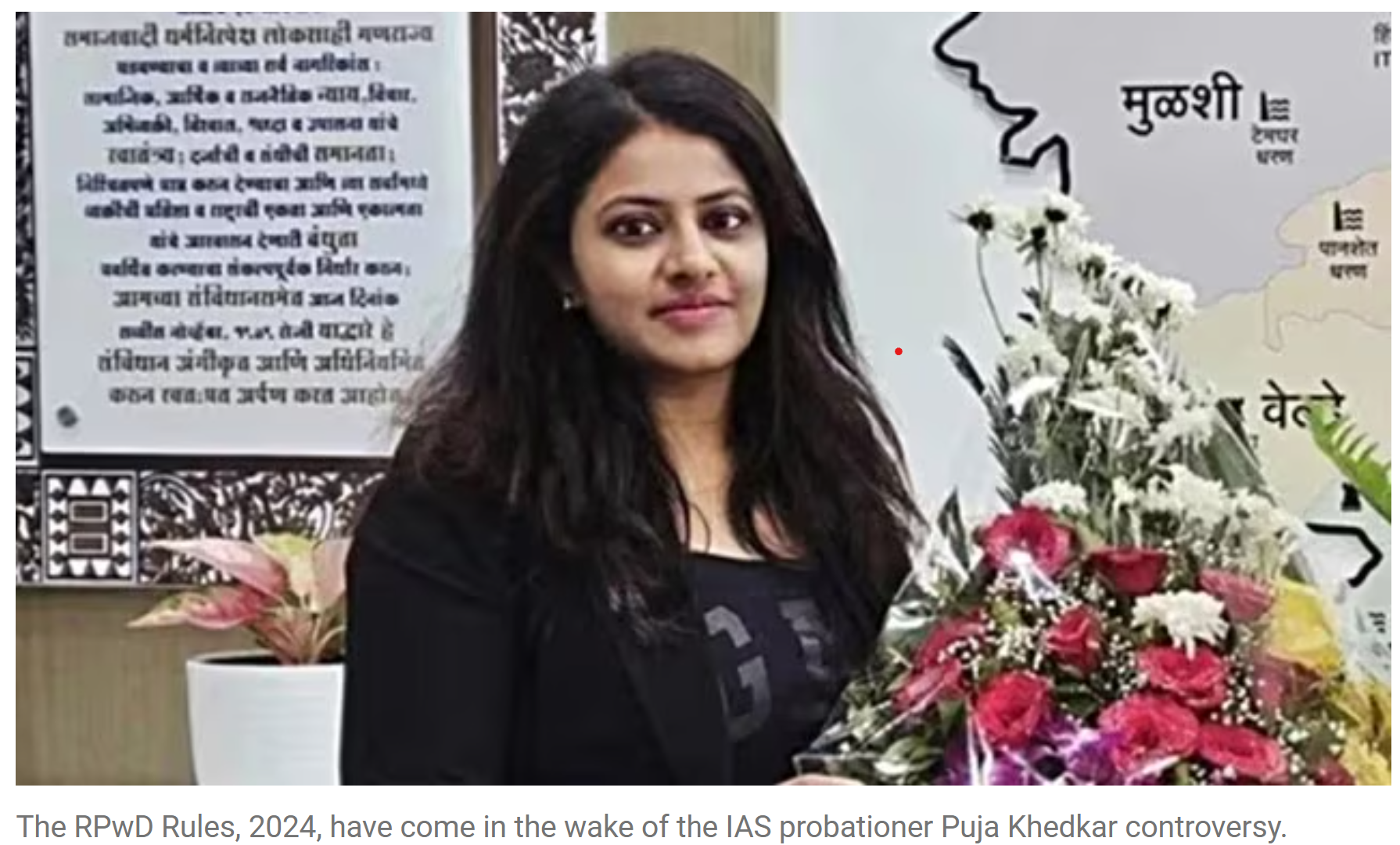New Disability Certificate Rules (RPwD Rules, 2024)

- 29 Oct 2024
In News:
- The Rights of Persons with Disabilities (RPwD) Rules, 2024, were amended by the Union Government in the wake of the Puja Khedkar controversy, where an IAS probationer was dismissed for alleged forgery in her disability and caste certificates.
- National Platform for the Rights of the Disabled (NPRD) has called for a rollback of the new rules, citing that they make the process of obtaining disability certificates more stringent and cumbersome.
Key Changes Under the New RPwD Rules, 2024
- Authority for Issuing Disability Certificates:
- Only a designated medical authority or a notified competent medical authority at the district level can issue disability certificates.
- NPRD had proposed that experts from non-profits also be authorized to carry out checks, but this suggestion was not accepted.
- Colour-Coded UDID Cards:
- The new rules introduce colour-coded UDID cards to represent levels of disability:
- White (general disability)
- Yellow (moderate disability)
- Blue (severe disability with 80% or higher).
- The new rules introduce colour-coded UDID cards to represent levels of disability:
- Mandatory Online Applications:
- Applicants are now required to apply for disability certificates online, which could be problematic for individuals who lack access to the internet, smartphones, or are digitally illiterate.
- The NPRD has urged the government to retain the option for in-person applications.
- Extended Time for Certificate Issuance:
- The new rules extend the time for issuing disability certificates from one month to three months.
- Reapplication Requirement:
- If there is no action taken on an application for two years, the applicant will have to reapply, which the NPRD considers unacceptable, as it punishes disabled individuals for system failures.
NPRD's Concerns
- Regressive and Burdensome:NPRD believes the amendments are regressive, adding more hurdles for genuine persons with disabilities to access certificates, which are crucial for identification and entitlement to services.
- Lack of Accountability:The NPRD argues that the rules do not address the systemic issues highlighted by the Puja Khedkar case, such as the lack of accountability at various levels in the certification process.
- Online Application Issues:Many people from the disabled community may struggle with technical jargon used in online applications and may not have the resources to complete the process digitally.
- Delay in Issuance:Extending the time for issuing certificates to three months could create delays for those in urgent need of certification for services or entitlements.
